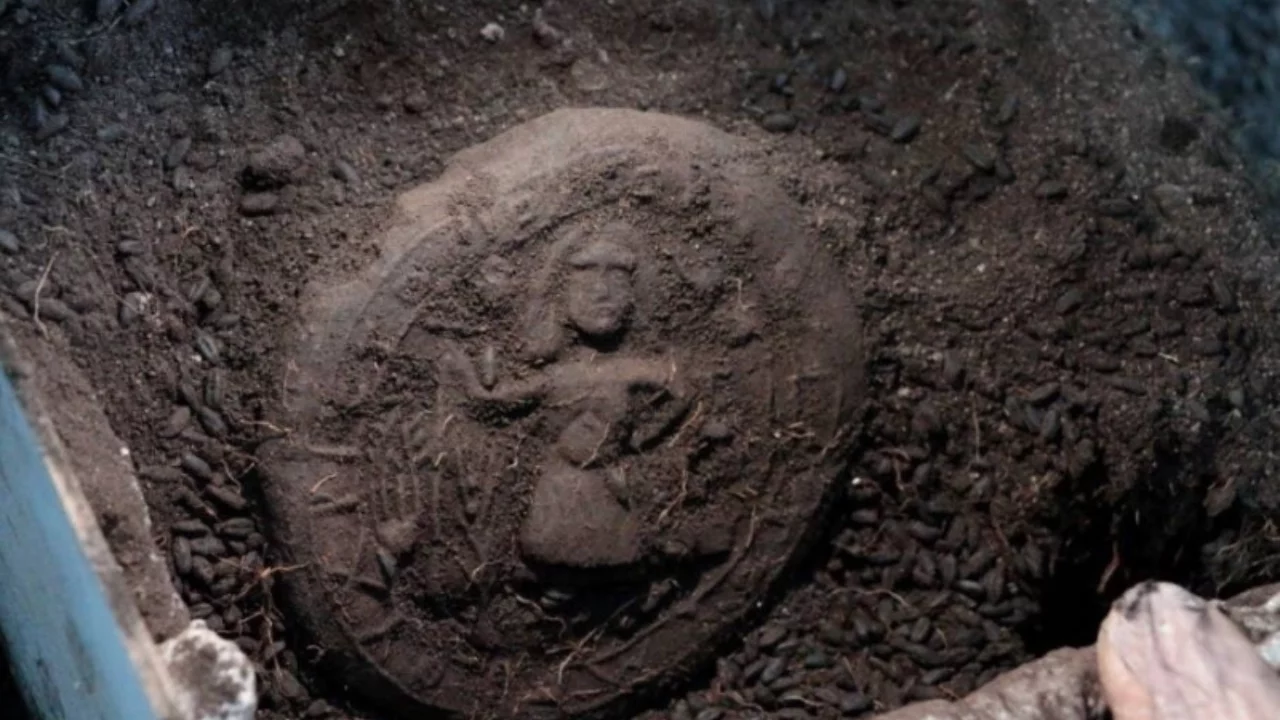1300-year-old bread with the image of Jesus Christ found in Turkey

Turkish archaeologists have announced a discovery that has amazed the global scientific community - they have found a 1300-year-old bread with an image of Jesus Christ. This was reported by the ATI portal.
The find was discovered at the Topraktepe archaeological site - in the area where the ancient city of Irenopolis was located. During the excavations, specialists discovered five round loaves of bread dating back to the 7th-8th centuries AD, which were naturally preserved by burning.
Archaeologists note that these loaves were preserved in excellent condition, and most of them bore the Maltese cross sign. But the most interesting and unique find is that on one of them, Jesus Christ himself is depicted, and next to him is an inscription in Greek: "Thanks to the Blessed Jesus."
Experts believe this image belongs to a unique iconographic form called "Farmer Christ" or "Jesus the Sower." This image shows Jesus Christ as a worker, a person who sows seeds on the earth. According to researchers, since this region was once an agricultural center, such a symbol was a symbol of fertility and abundance in the region.
Scientists suggest that these loaves were first prepared for a religious ceremony or a public holiday. But for certain reasons, they were not used - perhaps the baker or craftsmen cooked them in large quantities, and some burned by accident. Therefore, they have been preserved for history through time.
Archaeologists are currently planning to send the discovered loaves for paleobotanical analysis. This determines the composition of the grain, the type of flour, and the production method. It is also planned to study their carbonization process through computed tomography and microscopic analysis.
According to one of the research leaders, this discovery is of great importance not only for Turkey but for archaeology worldwide, as it provides new information about religious and everyday life during the Middle Ages.
Read “Zamin” on Telegram!




















